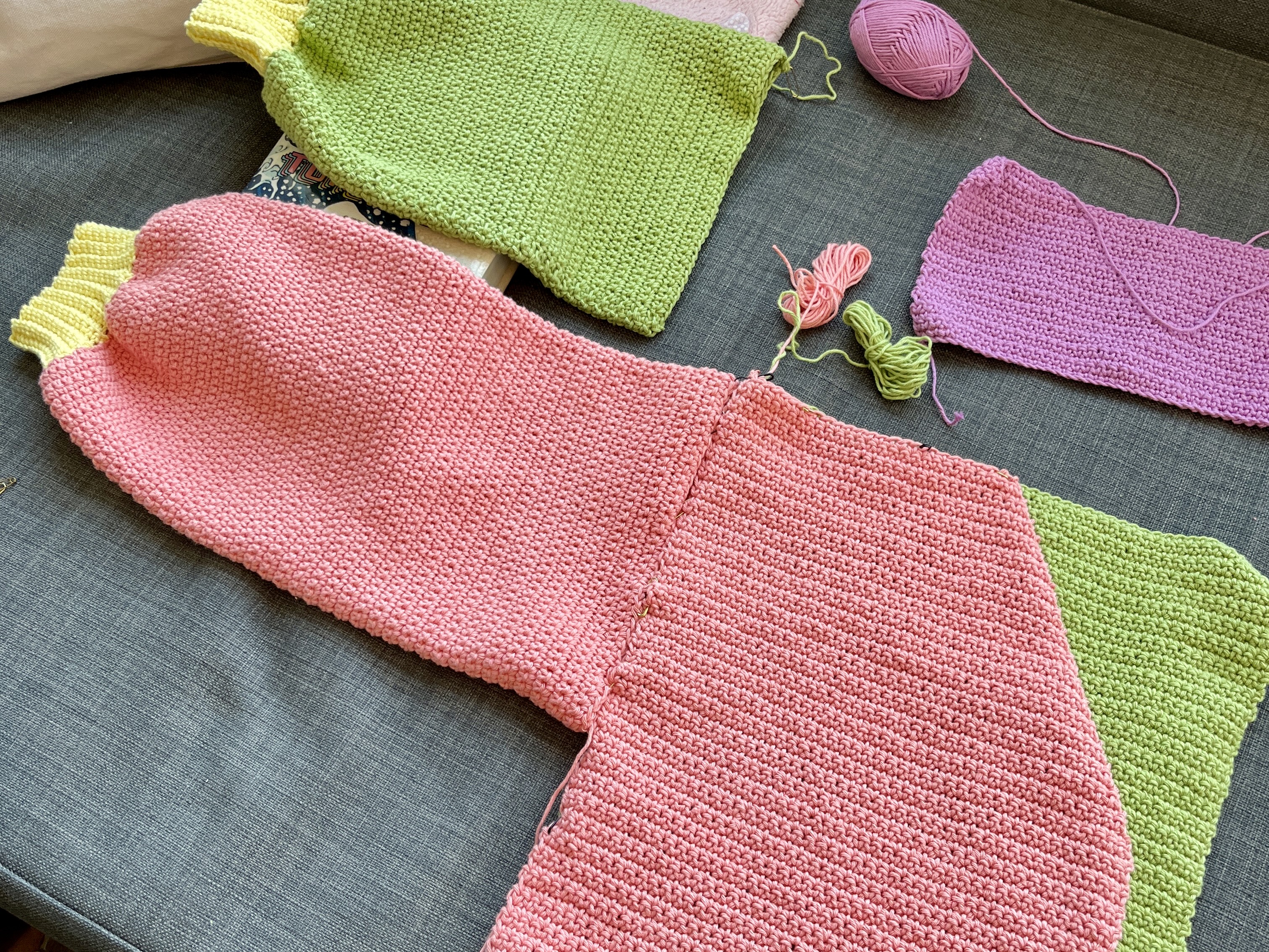slow hobbies
May 17, 2024
Categories:
personal
knitting-crochet
gardening
technology
Along with many people, I’ve become disillusioned with technology. Everyone knows now, to the point where it’s almost cliché to even mention that the major tech firms accrue wealth, exploit labour and natural resources, don’t have the best interests of society at heart, and can be generally summarized as “evil.” I first became aware of this starting from reading Eli Pariser, who coined the term “filter bubble”, to the revelations of Edward Snowden in 2013, to Kashmir Hill reporting on Facebook conducting experiments manipulating the emotions of its users. It’s no longer fringe or tinfoil hat-esque to talk about technology companies spying on you or trying to influence your thoughts for banal financial gain. And recently, with the massive amounts of slop being dumped on the internet by fads like cryptocurrency, NFTs, and AI, we can’t even clearly fall back on the excuse of but it works well and is so convenient. These are well-covered ideas too—Cory Doctorow wrote about the concept of enshittification and Ed Zittron has a blog and podcast covering this as well. Collectively, even only counting tech workers, surely thousands of hours of human labour is regularly wasted building products no one uses or cares about in bullshit jobs.
And yet, that barely scratches the surface of the truly horrific and massive amounts of human suffering that the technology industry is built on and relies on. All of our electronics require minerals like cobalt, an industry that runs on slavery in the DRC. Facebook contributed to the Rohingya genocide in Myanmar. Zeke Faux reported on the modern phenomenon of crypto scams, which turns out to involve a massive human trafficking operation, where converted hotels in Cambodia and Myanmar are filled with people who are imprisoned and forced to spend their days trying to scam the life savings out of hapless strangers on the internet. And of course, technology and access to technology is used as a means of control during times of war by governments, both of communication and facilitating aid and evacuations. We’ve seen this happen recently in Sudan and Gaza.
Sure, I still play video games and go on the internet, but it’s hard to bring myself to feel excited about technology in and of itself the way I used to (e.g. “Haskell is so cool!” “What’s that new JavaScript framework about?”)—to what end is this technology for? What’s the point? All of which is to say, maybe I now think of technology as mainly a utilitarian tool that we can use to facilitate accomplishing certain tasks and goals. Without revealing too much personal information about myself, I am a software developer and I work in a field and a company that I feel good about, and that I feel is useful to society. Interestingly, our tech stack is not fancy or cutting edge at all, because it turns out that’s not necessary to solve basic problems that cause a huge administrative burden on our users, in an industry that still relies heavily on fax and phone calls.
On the other hand, I’ve come to really appreciate “analog” activities, both as a craft/art form and as general life skills. By this, I mean activities like gardening, cooking, knitting/crochet, dance (and other sports), playing musical instruments, and drawing/painting. I feel like it’s valuable to learn “manual” skills in a privileged post-industrial society where the objects and tools of our daily lives can conveniently appear to be abstracted away from how they actually came to be. There seems to be an endless depth in each activity that you can explore and refine your craft, and the goal is not to maximize efficiency and make number go up as much as possible (whatever that even means here). In particular, gardening and knitting/crochet are things I’ve only started learning recently, and I plan to make more detailed posts chronicling my progress and learning, but here are some photos for now:
easy beginner hats; one of my now favourite sweaters; dragon for lunar new year
my balcony garden last year; cucumber and tomato seedlings I grew from seeds this season; my peony that bloomed for the first time this past week





